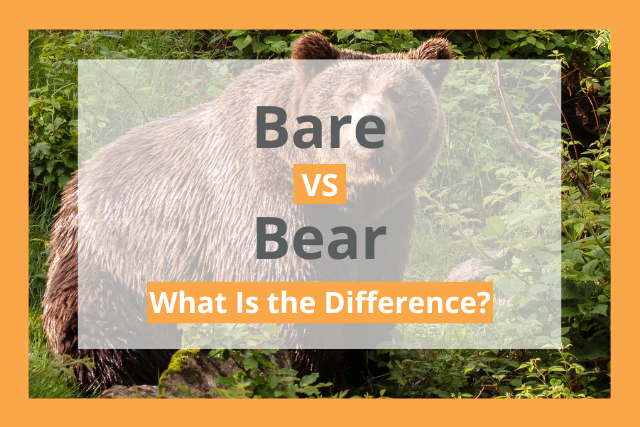
The words bare and bear are often confused because they have the same pronunciation but different meanings. We'll help you to understand the difference.
Bear means to support or sustain; to hold up when used as a verb.
Bear is also used as a noun. It means a large omnivorous mammal, related to the dog and raccoon, having shaggy hair, a very small tail, and flat feet; a member of family Ursidae.
Bare means minimal; that is or are just sufficient, uncovered when used as an adjective.
A good way to remember the difference is A bEAR has EARs.
The Difference Between Bare vs Bear
Bear and bare are homophones, which means they sound the same but have different spellings and meanings.
Bear Definition
Bear can be a noun and a verb. As a noun, a bear is a type of carnivorous, predatory animal, like grizzlies and polar bears. As a verb, bear means to "support or hold up, to carry or hold, or to produce or give birth."
Bare Definition
Bare is an adjective. It means "just sufficient, naked or in the nude, uncovered or undisguised."
Should I use 'bare bones' or 'bear bones'?
The correct expression is 'bare bones'. These phrases are often confused because they have the same pronunciation but different meanings.
Should it be 'bear down' or 'bare down'?
The correct phrase is 'bear down'. These phrases are often confused because they sound the same.
Is the right expression 'cross to bear' or 'cross to bare'?
The right phrase is 'cross to bear'. These phrases are often confused because they sound similar.
What's the right phrase 'crosses to bear' or 'crosses to bare'?
The correct phrase is 'crosses to bear'. These phrases are often confused because they are homophones.
Some synonyms of bare are: uncovered, minimal, nude, naked.
Some synonyms of bear are: carry, birth, support, hold.

